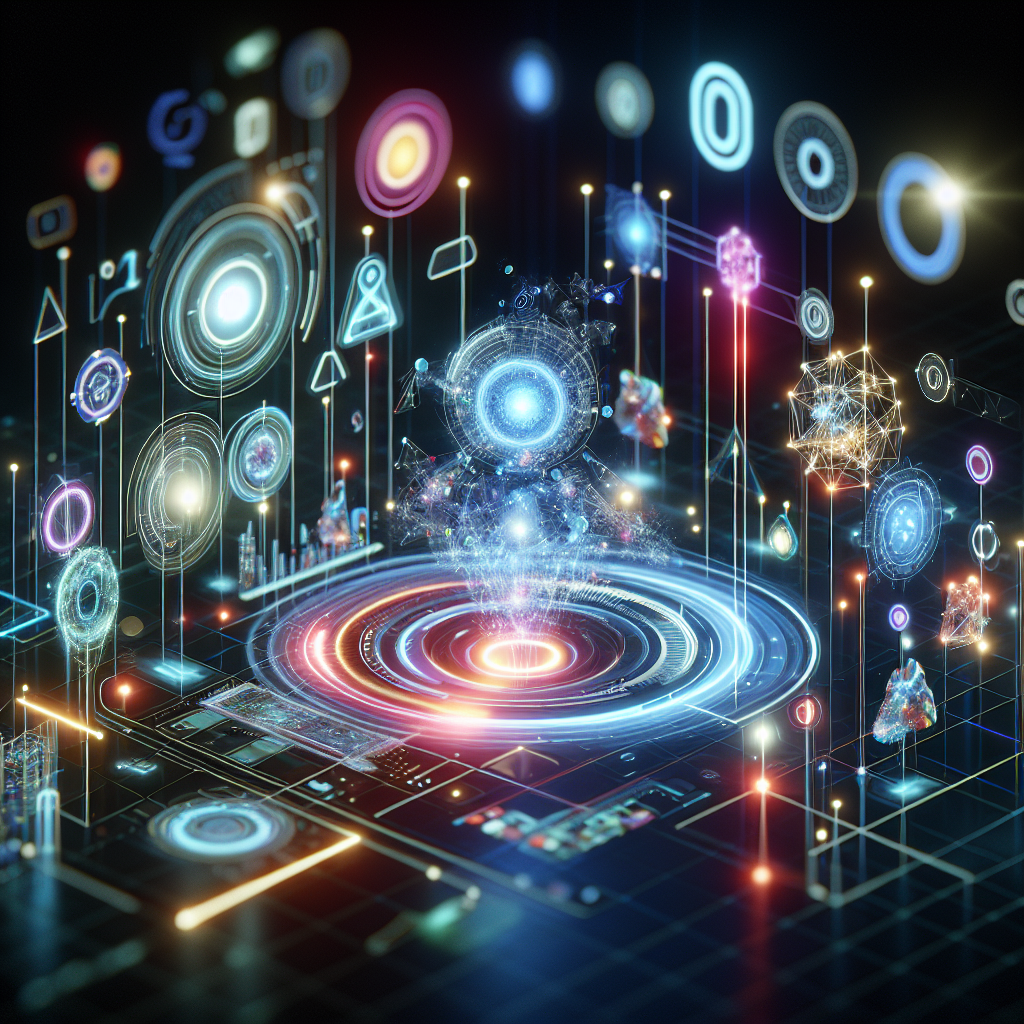Artificial Intelligence (AI) is revolutionizing many industries, and the gaming sector is no exception. One of the key areas where AI is making a significant impact is in the design of game user interfaces (UI). Traditionally, game UIs have been static and limited in their functionality, but with the advent of AI technology, developers are now able to create more dynamic and personalized interfaces that enhance the overall gaming experience.
AI-powered UIs are able to adapt to individual player preferences and behaviors, providing a more immersive gaming experience. These interfaces can analyze player data in real-time and make adjustments to the UI layout, color scheme, and navigation based on the player’s interactions. This level of personalization helps to create a more engaging and enjoyable gaming experience for players, ultimately leading to increased player retention and satisfaction.
One of the key ways in which AI is redefining game UIs is through the use of machine learning algorithms. These algorithms are able to analyze player behavior and preferences to predict future actions and adapt the UI accordingly. For example, if a player tends to favor a particular weapon in a first-person shooter game, the AI can adjust the UI to make it easier for the player to access that weapon quickly during gameplay. This level of customization helps to streamline the gaming experience and make it more intuitive for players.
Another way in which AI is redefining game UIs is through the use of natural language processing (NLP) technology. NLP allows for more natural and conversational interactions between players and the game interface. For example, players can use voice commands to navigate menus, select options, or even interact with in-game characters. This level of interactivity helps to create a more immersive and engaging gaming experience, as players feel more connected to the game world.
AI-powered UIs are also able to provide real-time feedback to players, helping them to improve their skills and performance. For example, in a racing game, the AI can analyze a player’s driving style and provide tips and suggestions for how to improve their lap times. This level of personalized feedback helps players to continuously improve and progress in the game, leading to a more satisfying gaming experience.
In addition to enhancing the player experience, AI-powered UIs also offer benefits to game developers. By analyzing player data and behavior, developers can gain valuable insights into player preferences and trends. This information can be used to optimize game design, create more engaging content, and tailor marketing strategies to specific player segments. Ultimately, AI-powered UIs help developers to create more successful and profitable games.
Overall, AI is redefining game UIs by providing more personalized, interactive, and adaptive interfaces that enhance the gaming experience for players. By leveraging machine learning, NLP, and other AI technologies, developers are able to create UIs that are dynamic, intuitive, and engaging. As AI continues to advance, we can expect to see even more innovative and immersive game UIs in the future.
FAQs:
Q: How does AI analyze player behavior to personalize the game UI?
A: AI algorithms analyze player data in real-time, tracking player interactions, preferences, and behaviors to predict future actions and adapt the UI accordingly. This allows for a more personalized and tailored gaming experience for each player.
Q: How does NLP technology enhance the gaming experience?
A: NLP technology enables more natural and conversational interactions between players and the game interface. Players can use voice commands to navigate menus, interact with in-game characters, and access information, creating a more immersive and engaging gaming experience.
Q: What are the benefits of AI-powered UIs for game developers?
A: AI-powered UIs provide valuable insights into player preferences and behavior, helping developers to optimize game design, create more engaging content, and tailor marketing strategies. This leads to more successful and profitable games in the long run.

